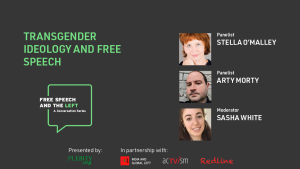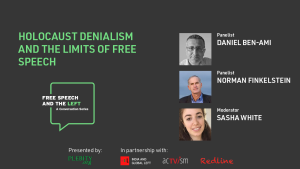
This article was originally posted on Redline.
Details of proposed new hate speech laws have been revealed in a December Cabinet paper obtained by Newsroom.
The paper, seeking to “strengthen the protections against hate speech”, would extend existing provisions against incitement and hate speech. It would also move hate speech offences from the Human Rights Act to the Crimes Act and expand the penalties for breaching the law. Offenders could be penalised with three years imprisonment.
“Hate speech” is often mentioned as if it’s some sort of unpleasant abstract entity. Like everything else, it arises from certain conditions.
Our speech is made in the context of our society’s structure. It’s not surprising that some of our words are rotten. Below its smooth official surface, New Zealand’s social structure is severely fractured.
A September 2020 Guardian article by Max Rashbrooke revealed:
“ The extent of wealth inequality in supposedly egalitarian New Zealand has been laid bare by figures showing the wealthiest individuals have over NZ$140bn (US$93bn) stashed away in trusts – and overall have nearly 70 times more assets than the typical Kiwi.
The new data, drawn from the 2017-18 Household Economic Survey, are likely to underestimate true inequality, as the ultra-wealthy are generally reluctant to take part in such surveys.
The data show that New Zealand’s wealthiest 1% of adults – around 38,000 people – have $141bn in trusts. Another 150,000 or so people, rounding out the rest of the wealthiest 5%, have trusts worth a further $122bn.
The wealth inequality data, developed in conjunction with Statistics New Zealand researchers, also show that the 1% have an average (mean) of $3.6m held in trusts, $1.6m in shares and $470,000 in cash. Their debts are on average just $80,000.
Among those in the poorest half of the country, meanwhile, the average person owns assets worth just $46,000 and has debts of $33,000, leaving them with a net worth of $12,000. They have negligible wealth in trusts and on average just $4,000 in the bank, leaving them vulnerable to sudden financial shocks
Overall, the wealthiest 10% have 59% of all the country’s assets, and the middle classes around 39%. That leaves the poorest half of the country with just 2%.”
Behind these cold statistics are tragedies of families struggling from week to week. Robbed of good education, basic health care, decent housing and money to spend on a few of life’s luxuries.
Blandly, Prime Minister Jacinda Ardern advises her “team of five million”- “be kind to each other”. She is too intelligent to believe this nonsense herself, so why even state it?
The idea that we’re all basically equal teammates helps conceal the truth about poverty’s source.
The enduring myth about economic inequality is that it’s some sort of unavoidable natural state, which can be alleviated only slightly, by tiny wage adjustments and so called “fair pay” agreements.
In fact, capitalist inequality is inherent in the system’s innermost workings. Goods and services are only produced if they can return the expected rate of profit. The source of all capitalist profit is surplus value. In the course of capitalist production, the working class expends its labour power to produce value greater than that which is returned to it in the form of wages. The surplus value is appropriated by the capitalist class by virtue of its ownership and control of the means of production.
The essence of capitalist exploitation is not occasional misbehaviour by a few dodgy businesses but the hourly and daily production and appropriation of surplus value. Hence the enormous gulf between the incomes – and lives – of the owning rich and the working poor. Such callous legal injustice against working folks could be aptly titled Hate Economics.
Deprivation and poverty scarred lives are not born happily. Social tensions break out in untidy, sometimes ugly ways. Some of this is orchestrated, opportunist politicians routinely blame immigrants and other sections of the working class for various social ills. Such deception helps ensure that main cause of economic injustice remains unseen and unrecognised.
At a time like now, when unions are particularly weak and marginalised, there isn’t even the counter balance of a united labour movement to fight back against economic injustice. Political leaders railing against Hate Speech while practicing Hate Economics against the mass of workers is sheer hypocrisy. Today, more than ever, we need open exchange and clash of ideas, so that the causes of injustice can be uncovered. So that social frustrations can be better directed to where they belong, against those few at the top, whose inhumane system is the daily cause of our poverty.



